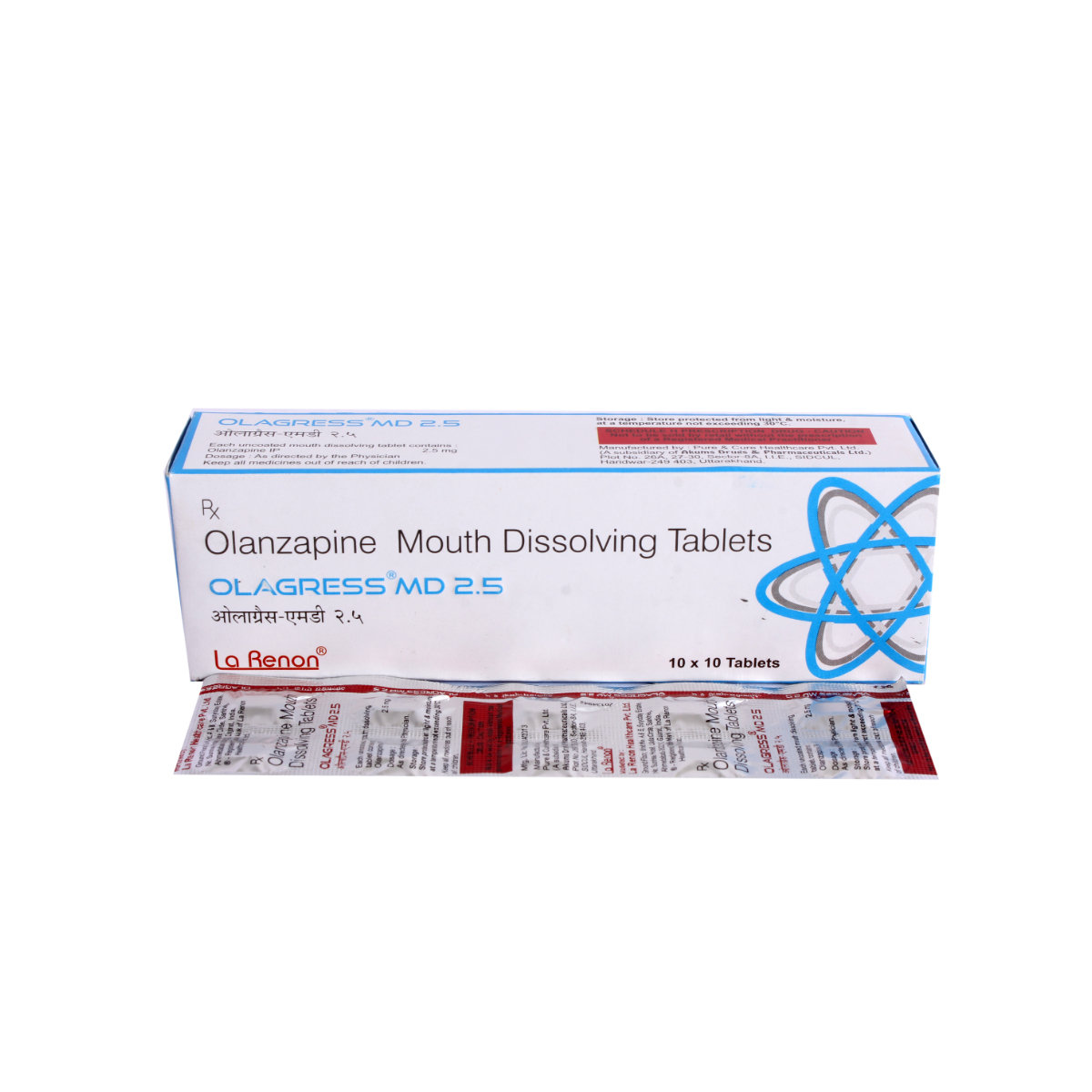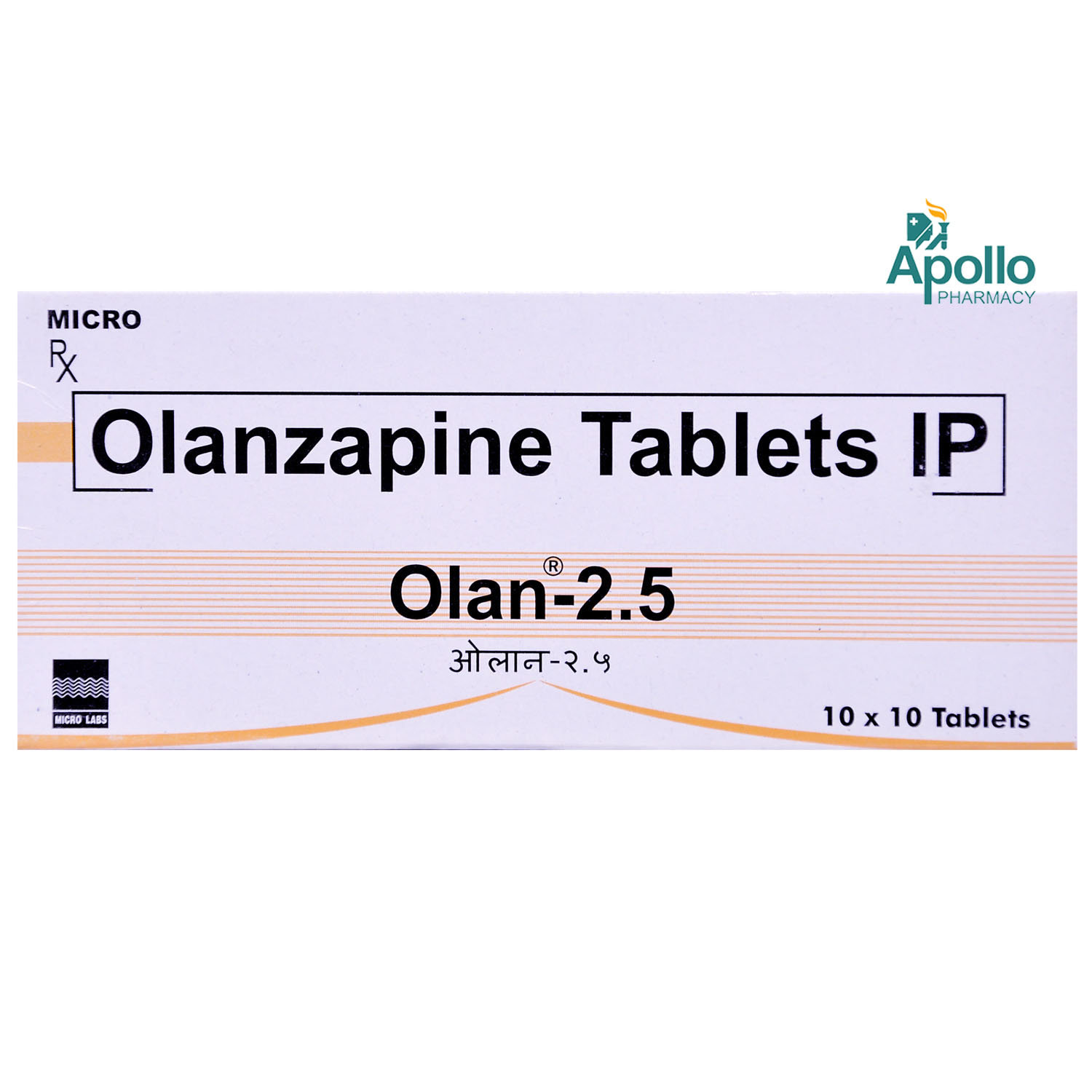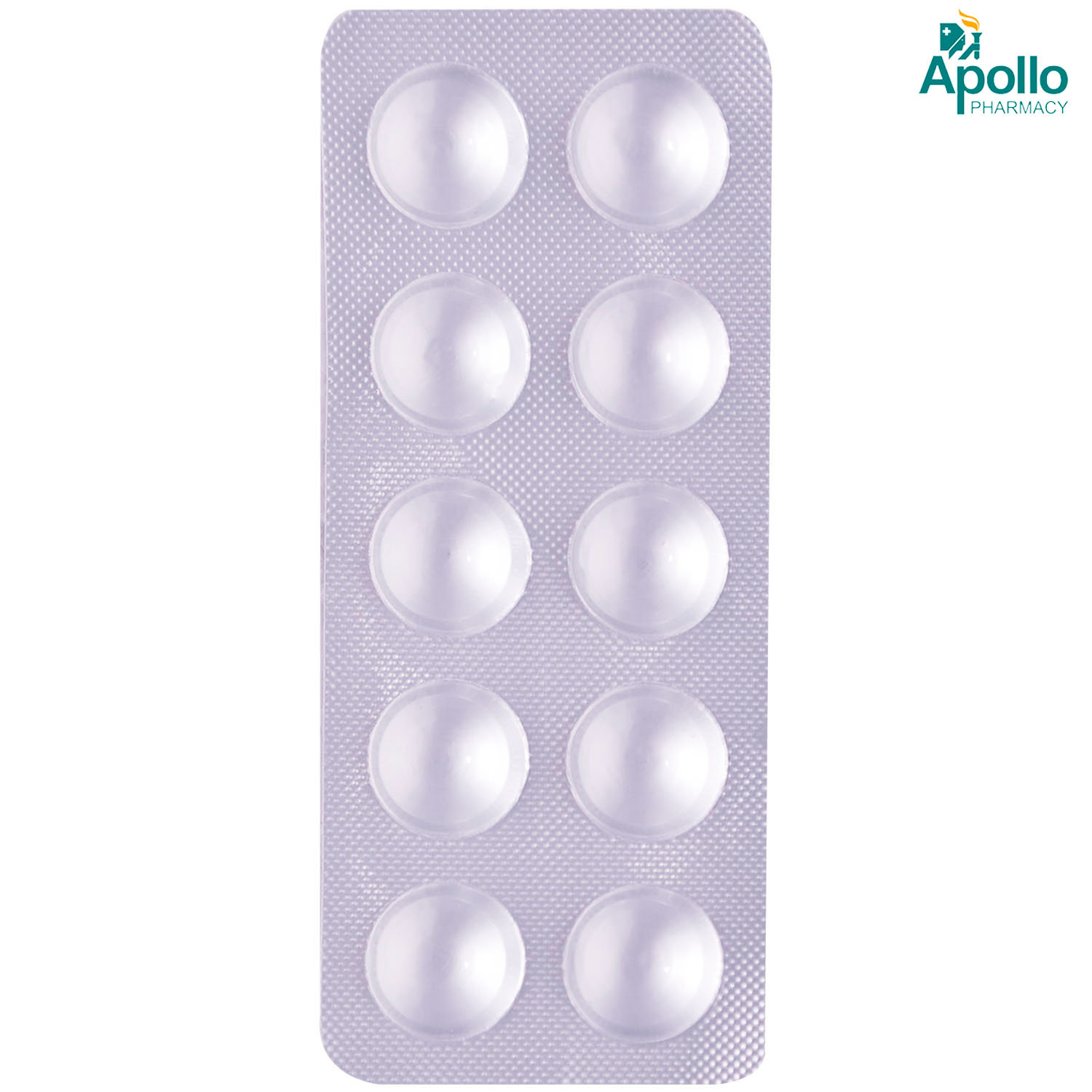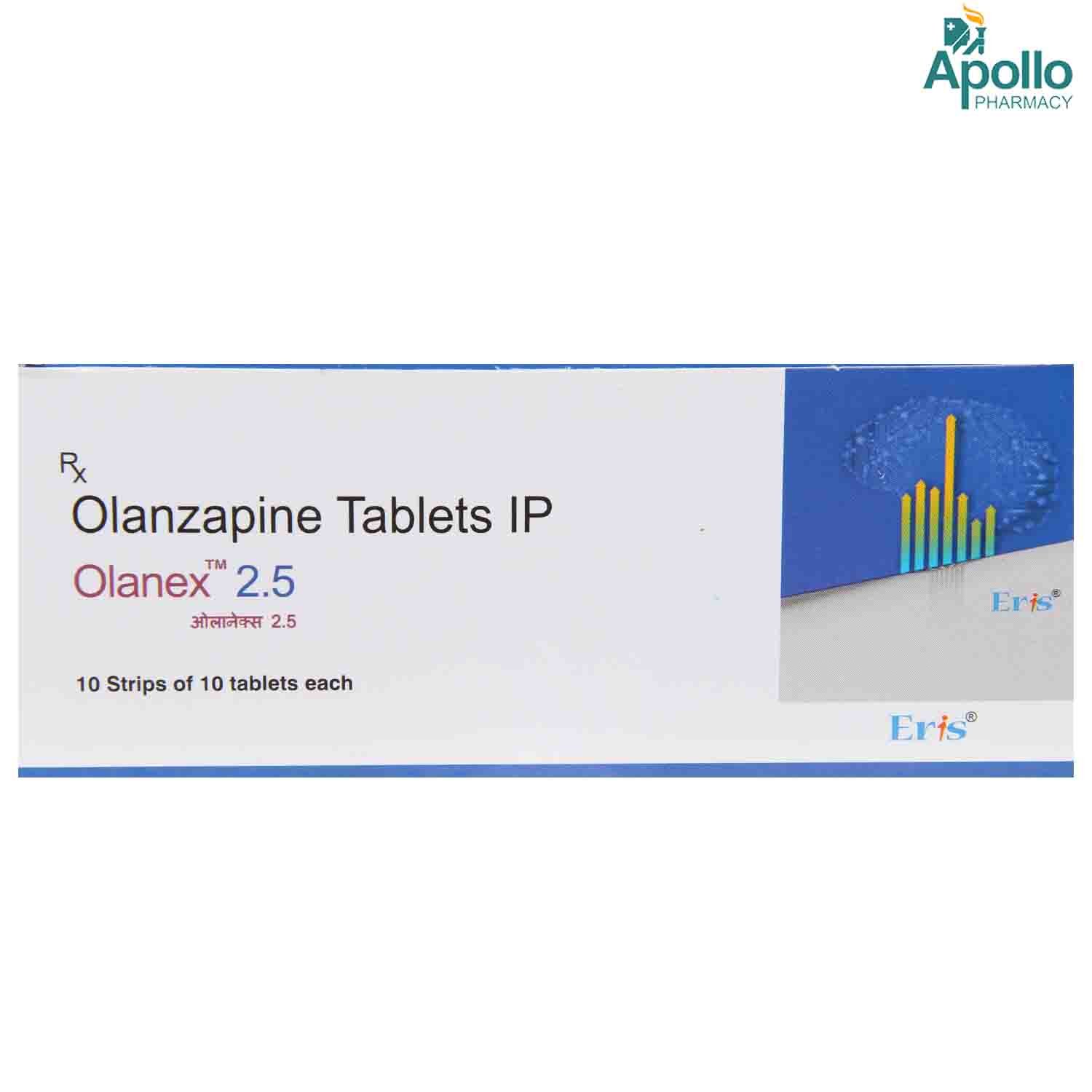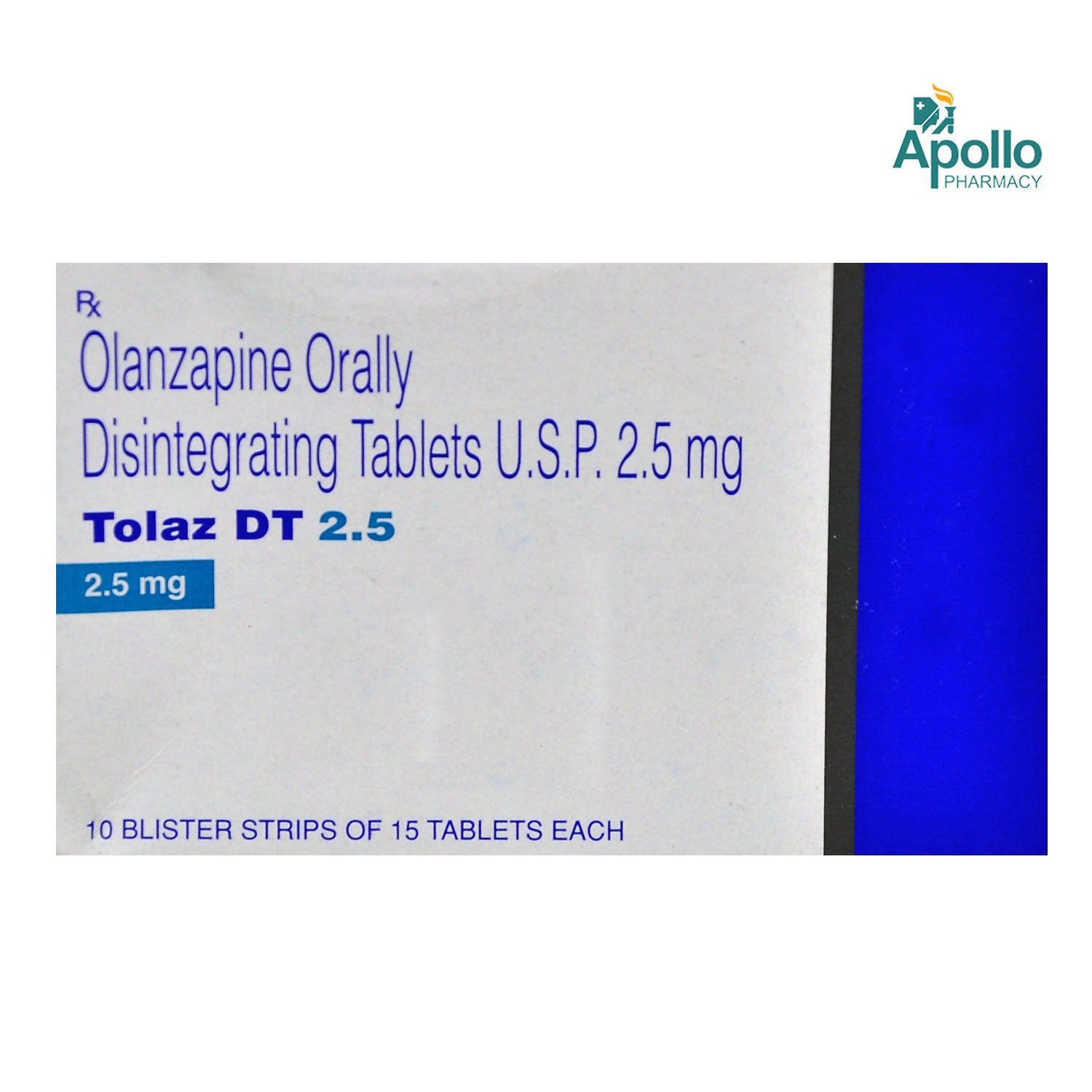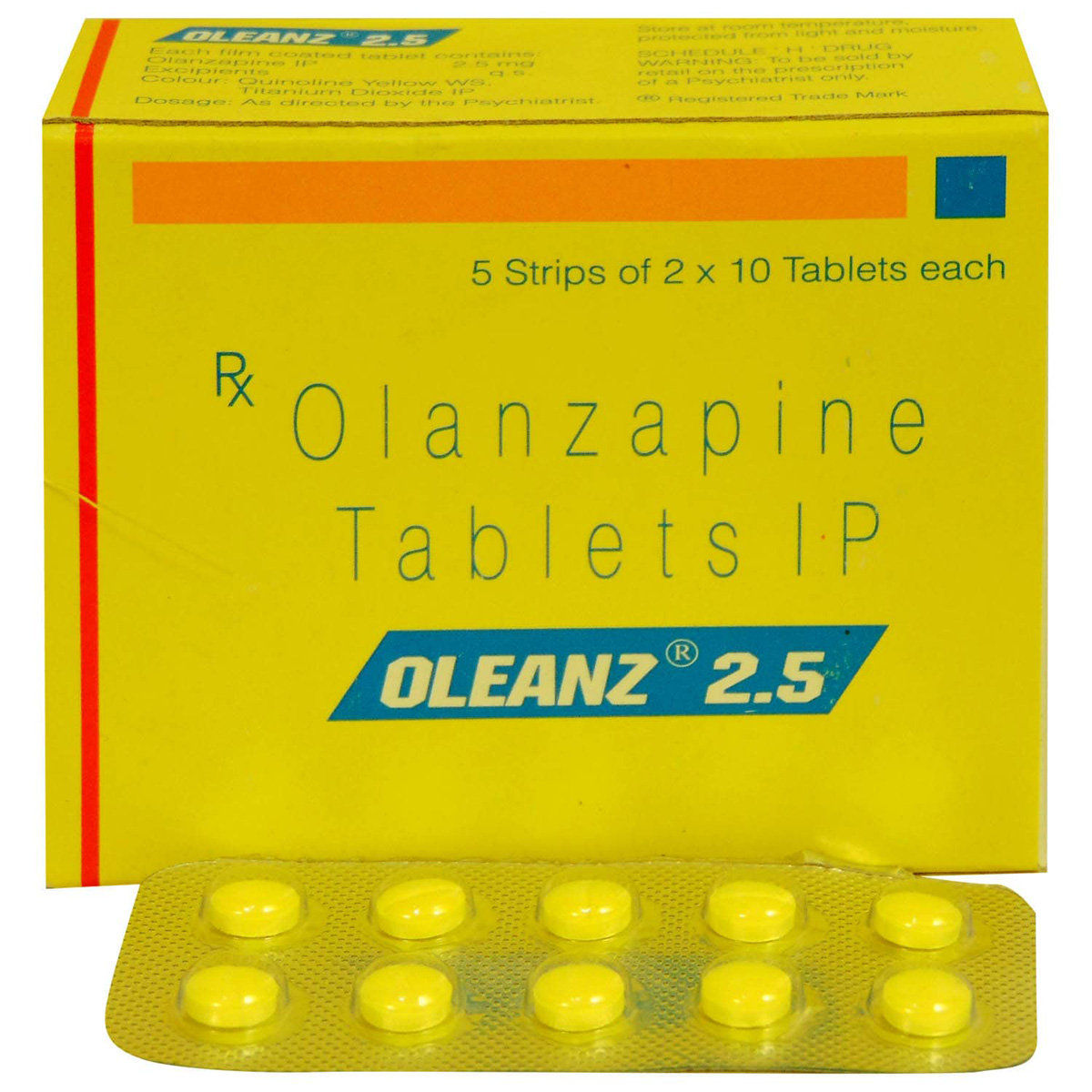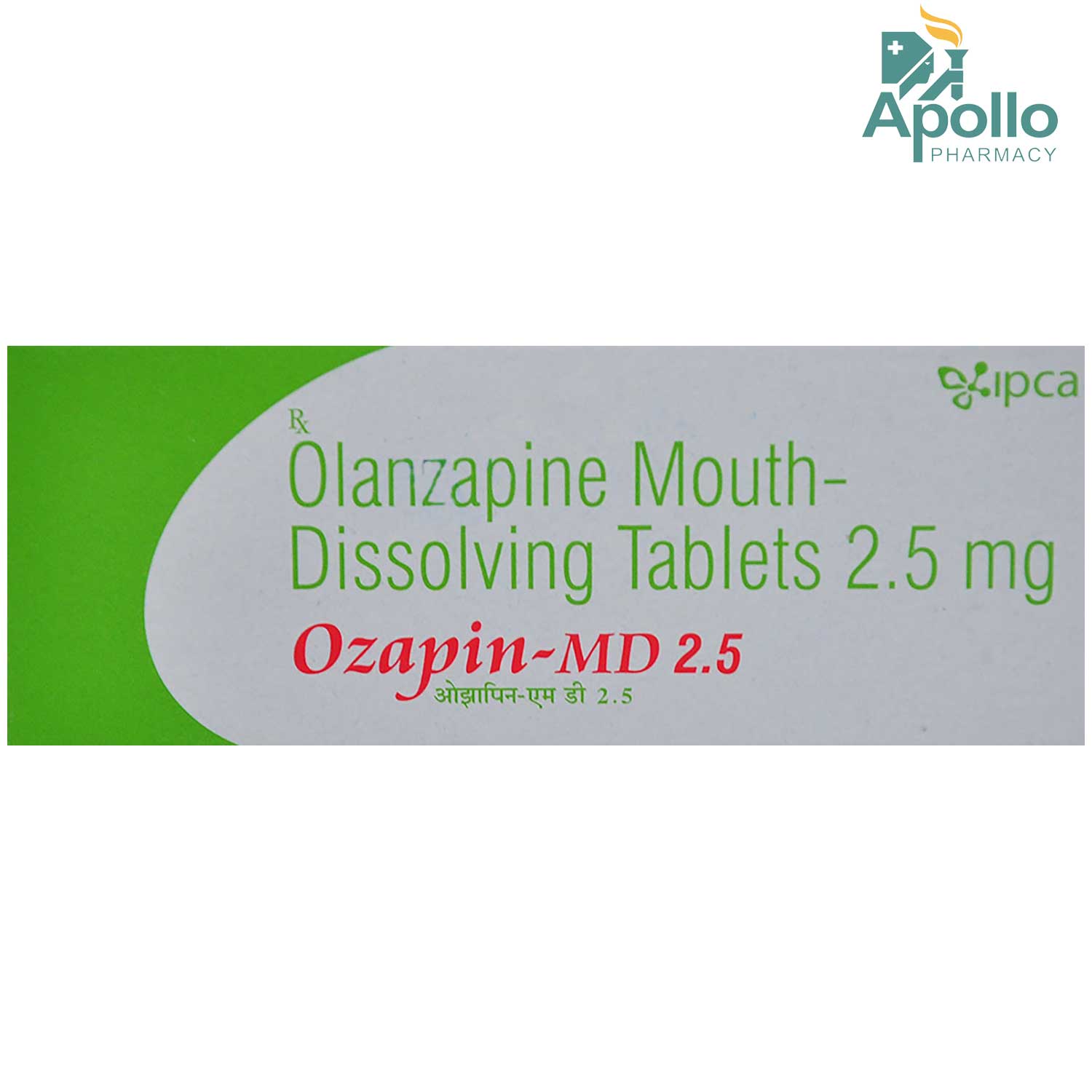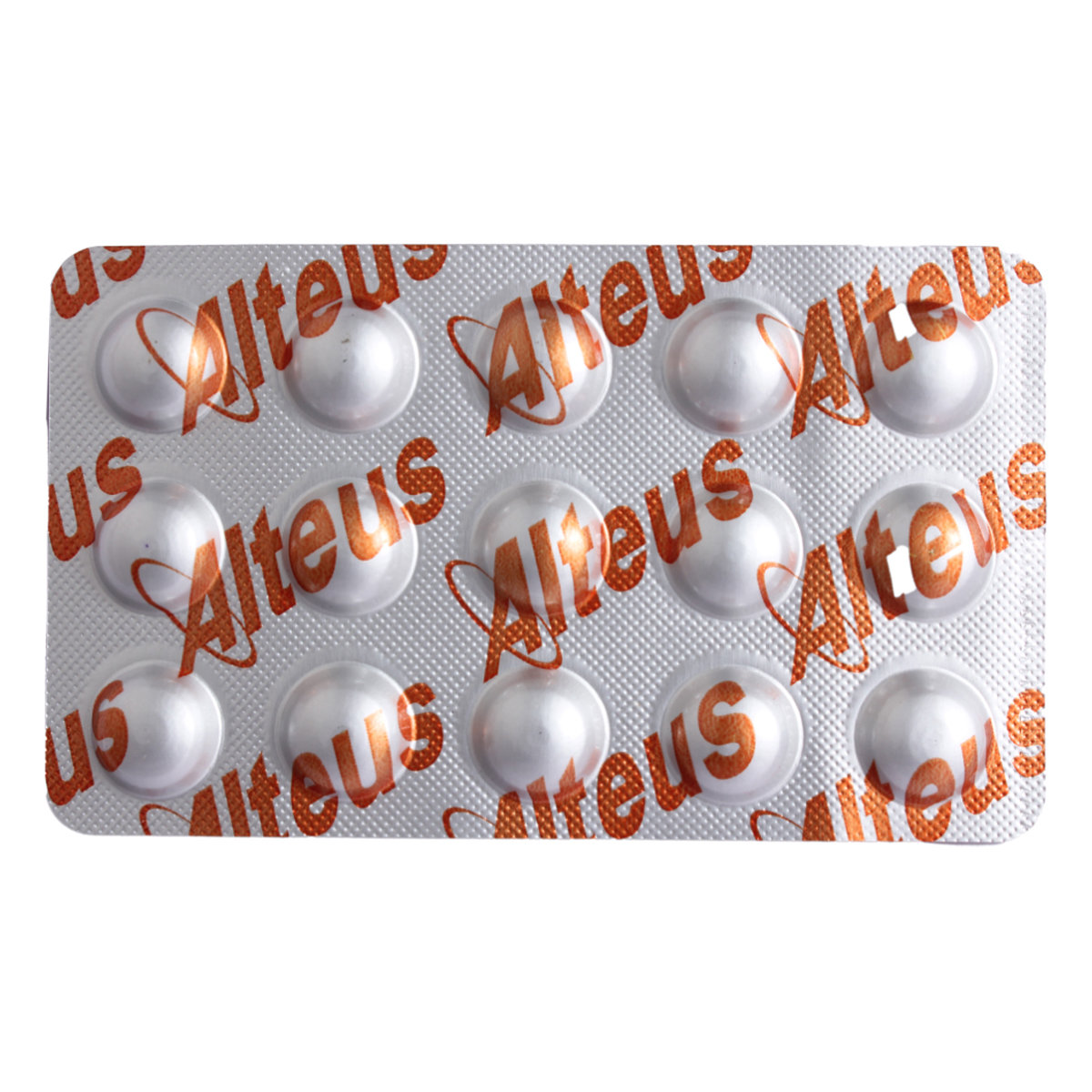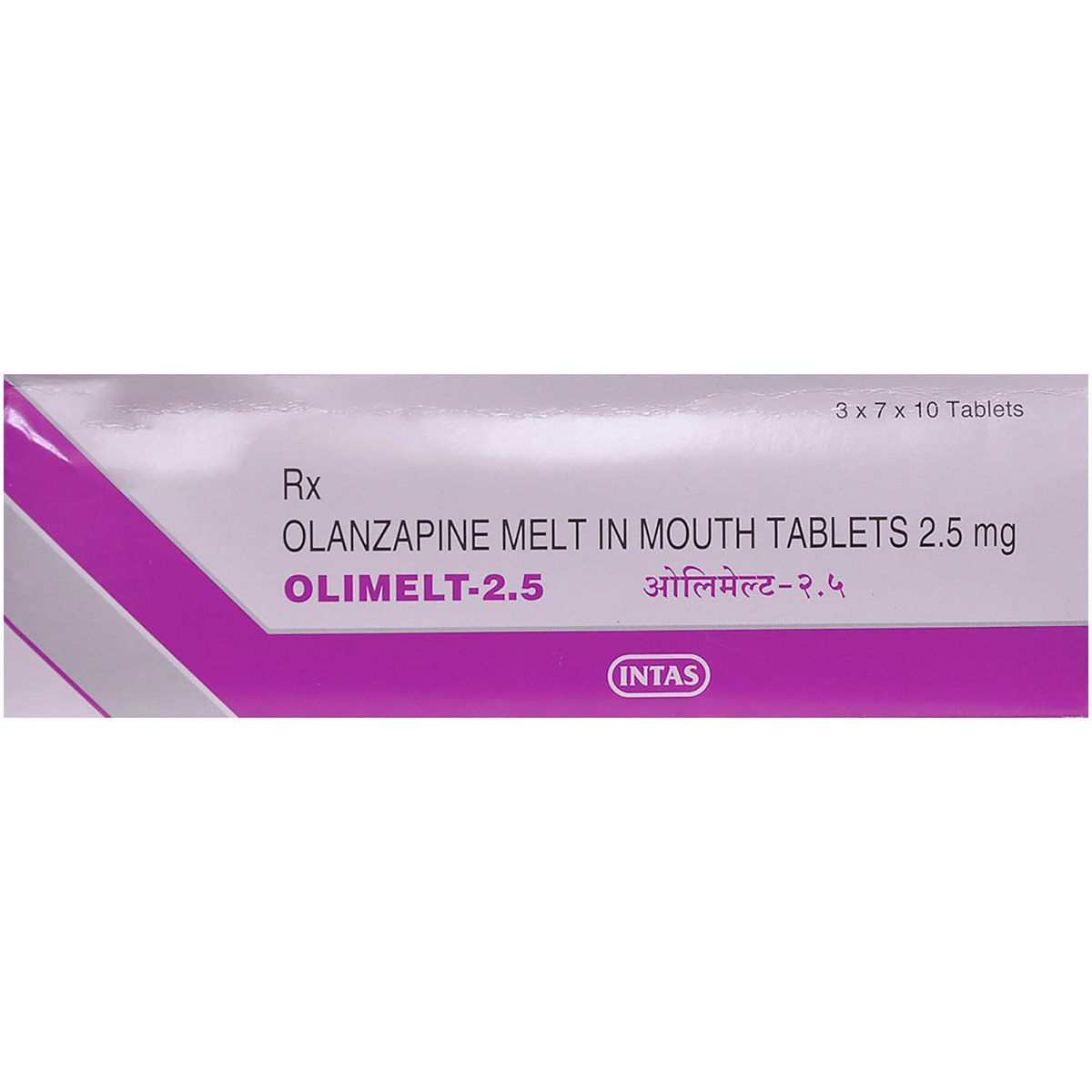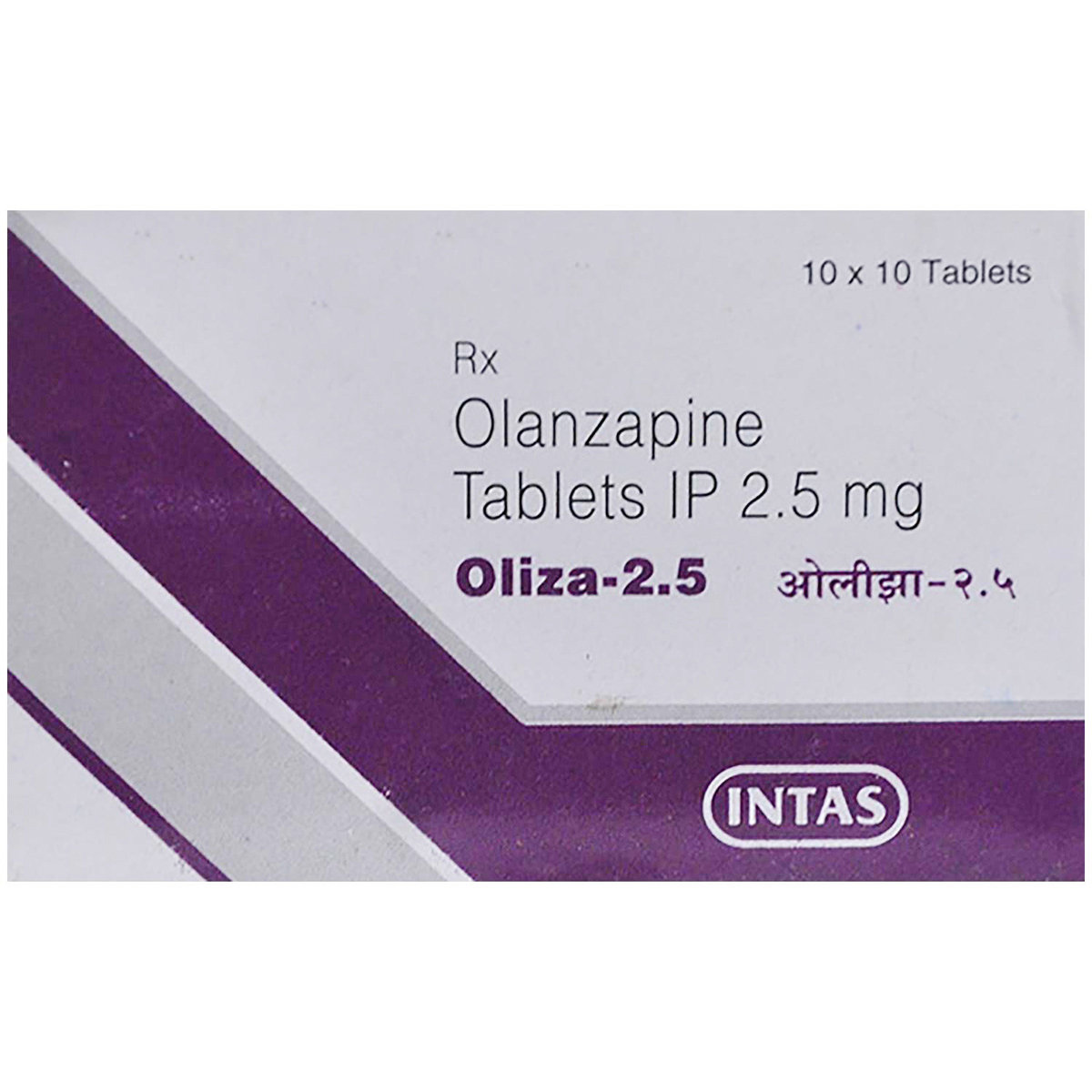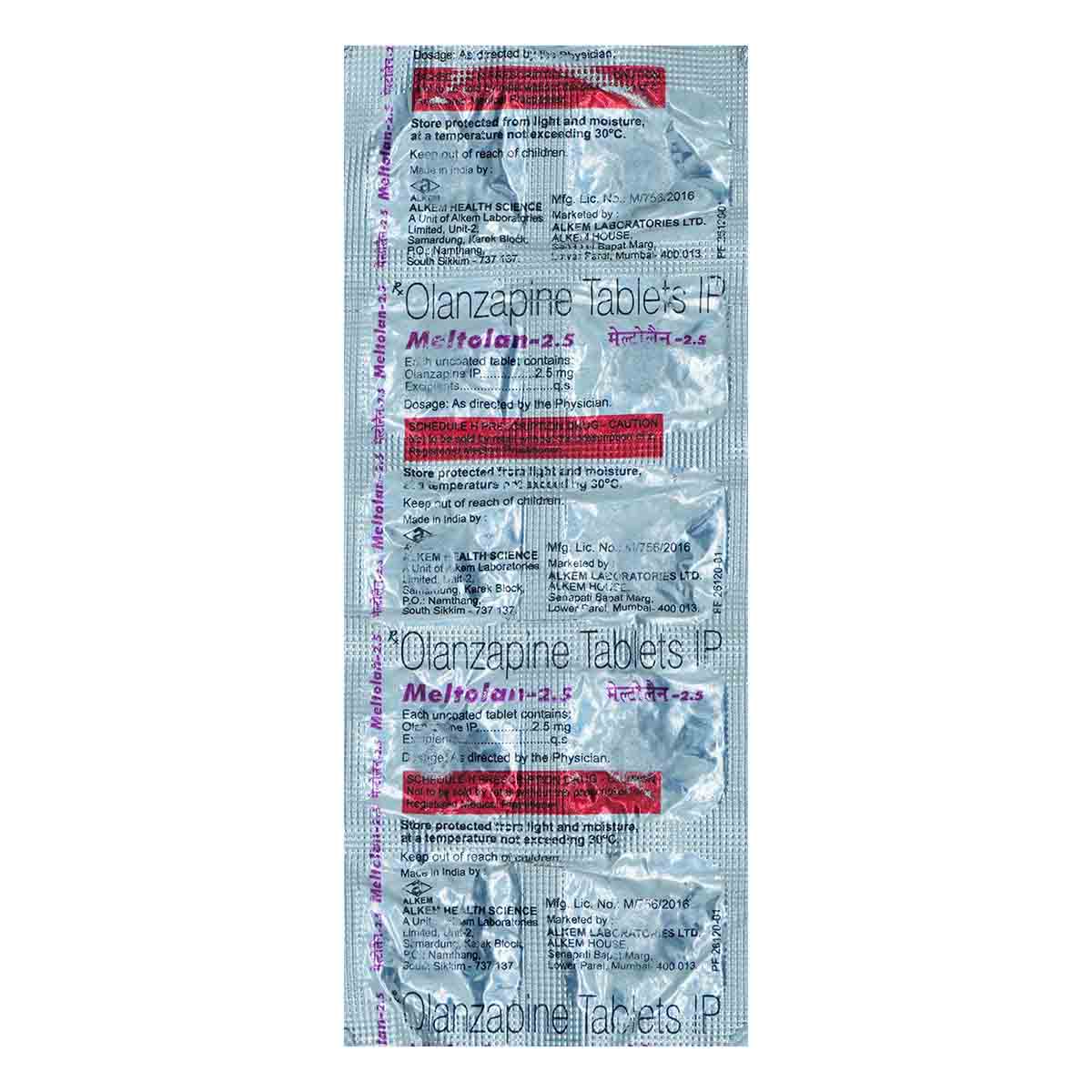- Home
- Olpicad MD 2.5 mg Tablet
Olpicad MD 2.5 mg Tablet Substitute
Olpicad MD 2.5 mg Tablet Substitute
Medicine Composition:
OLANZAPINE-2.5MGAll Substitutes & Brand Comparisons
RX
Oline 2.5 mg Tablet 10's
D D Pharmaceuticals Pvt Ltd
₹34.5
(₹3.11 per unit)
130% COSTLIERRX
Olagress-MD 2.5 mg Tablet 10's
La Renon Healthcare Pvt Ltd
₹34.5
(₹3.11 per unit)
130% COSTLIERRX
Olay 2.5 Tablet 10's
Talent India Pvt Ltd
₹35.5
(₹3.2 per unit)
137% COSTLIERRX
Olarc 2.5 Tablet 10's
Sigmund Promedica
₹39.5
(₹3.56 per unit)
163% COSTLIERRX
Oltha 2.5mg Tablet 10's
Shine Pharmaceuticals Ltd
₹41.5
(₹3.74 per unit)
177% COSTLIERRX
Oliramp 2.5 Tablet 10's
Arinna Lifesciences Ltd
₹42.5
(₹3.83 per unit)
183% COSTLIERRX
Olanex 2.5 Tablet 10's
Eris Life Sciences Ltd
₹43.5
(₹3.92 per unit)
190% COSTLIERRX
Out of StockOleanz Rapitab 2.5 mg Tablet 10's
Sun Pharmaceutical Industries Ltd
₹43.5
(₹3.92 per unit)
190% COSTLIERRX
Tolaz DT 2.5 mg Tablet 15's
Torrent Pharmaceuticals Ltd
₹70
(₹4.2 per unit)
211% COSTLIERRX
Oleanz 2.5 Tablet 10's
Sun Pharmaceutical Industries Ltd
₹47.5
(₹4.28 per unit)
217% COSTLIERRX
Ozapin-MD 2.5 Tablet 10's
Ipca Laboratories Ltd
₹48.5
(₹4.37 per unit)
223% COSTLIERRX
Olet-2.5 MD Tablet 15's
Alteus Biogenics Pvt Ltd
₹76
(₹4.56 per unit)
237% COSTLIERRX
Olimelt 2.5 Tablet 10's
Intas Pharmaceuticals Ltd
₹51.5
(₹4.64 per unit)
243% COSTLIERRX
Oliza-2.5 Tablet 10's
Intas Pharmaceuticals Ltd
₹51.5
(₹4.64 per unit)
243% COSTLIERRX
Meltolan 2.5 mg Tablet 10's
Alkem Laboratories Ltd
₹53
(₹4.78 per unit)
254% COSTLIER

When Should You Consider Switching from Olpicad MD 2.5 mg Tablet ?
Patients may explore substitutes in the following scenarios:
- High monthly cost of Olpicad MD 2.5 mg Tablet
- Non-availability in local pharmacies
- Generic recommendation by a doctor
- Side effects or better tolerability with alternatives
What to Know Before Switching
Before you switch from Olpicad MD 2.5 mg Tablet to another medicine, here are some important points to keep in mind:
Same salt, different brands:
Most substitutes contain the same active ingredient - OLANZAPINE-2.5MG, but the fillers, coating, or manufacturing quality may vary slightly.
Consult your doctor first:
Even if the salt is the same, your doctor can confirm if the substitute is right for your condition, dosage, and health history.
Watch out for allergies or reactions:
Some people may react differently to certain brands due to inactive ingredients. If you notice any side effects, inform your doctor immediately.
Price ≠ effectiveness:
A lower-priced substitute doesn't mean it's less effective. Many generic medicines work just as well as branded ones.
Check the dosage form and strength:
Always match the substitute’s strength (e.g., 5mg, 10mg) and form (tablet, capsule, syrup) with what your doctor prescribed.
Uses
Olpicad MD 2.5 mg Tablet is used in the treatment of Schizophrenia and Manic depression (bipolar disorder). The detailed uses of Olpicad MD 2.5 mg Tablet are as follows:
- Bipolar Disorder Management: Olpicad MD 2.5 mg Tablet is frequently used to help stabilize mood and lessen the frequency of mood swings by treating the manic and depressed episodes linked to bipolar disorder.
- Treatment for Schizophrenia: This drug helps people with schizophrenia manage symptoms like delusions, hallucinations, and disordered thinking, which helps them live healthier lives.
- Generalized Anxiety Disorder: Olpicad MD 2.5 mg Tablet may be recommended to treat the symptoms of generalized anxiety disorder, allowing patients to feel less stressed and anxious.
- Adjunctive Therapy for Major Depressive Disorder: Olpicad MD 2.5 mg Tablet is sometimes used as an adjuvant treatment to help people with major depressive disorder who are not responding well to conventional antidepressants.
Medicinal Benefits
Olpicad MD 2.5 mg Tablet is used to treat schizophrenia and manic depression (bipolar disorder). It effectively treats manic episodes of bipolar disorder and agitation in schizophrenia. It contains 'Olanzapine,' which belongs to the class of atypical antipsychotics. It works by restoring the balance of chemical messengers (dopamine and serotonin) in the brain. It is also known to improve thinking, mood, and behaviour. It helps in clear thinking and relieves psychotic symptoms like hallucinations.
FAQs
The substitutes of Olpicad MD 2.5 mg Tablet contain the same active salt(s) - OLANZAPINE-2.5MG. However, they may differ in price, manufacturing quality, and inactive ingredients. Speak to your doctor to find a suitable option.
Switching to a generic substitute medicine in the place of Olpicad MD 2.5 mg Tablet is often possible if it has the same salt, strength, and dosage form. But always check with your doctor before making any changes to your medication.
Generics versions of Olpicad MD 2.5 mg Tablet are typically more affordable because they don’t include the original brand's research, development, and marketing costs. They contain the same active ingredient and are approved for safety and effectiveness.
Most people don’t notice any difference. However, some may react to different fillers or coatings. If you notice any unusual symptoms after switching, consult your doctor.
Make sure the new medicine has the same active salt, strength, dosage form. Always confirm the change with your doctor or pharmacist.
Substitutes of Olpicad MD 2.5 mg Tablet meet the same safety and efficacy standards as Olpicad MD 2.5 mg Tablet , but small differences in absorption or formulation can exist. A doctor can help you choose the right one for your needs.
Yes. Substitutes of Olpicad MD 2.5 mg Tablet may vary in color, size, or shape due to differences in manufacturing and branding, but this does not affect how they work.
Yes, it’s generally safe to switch between multiple substitutes of Olpicad MD 2.5 mg Tablet if they have the same salt and strength. However, always inform your doctor so they can monitor how your body responds.
Yes, many people safely use substitutes of Olpicad MD 2.5 mg Tablet for long-term treatment. Just ensure it’s done under medical supervision.
If your symptoms stay under control or lab results remain stable, the substitute for Olpicad MD 2.5 mg Tablet is likely working well. Regular follow-ups with your doctor are important.
Absolutely. Even with the same salt, small differences can affect how your body responds when switching from Olpicad MD 2.5 mg Tablet to its substitute. Always consult your doctor before switching.
Olpicad MD 2.5 mg Tablet is used to treat schizophrenia and manic depression (bipolar disorder).
Olpicad MD 2.5 mg Tablet contains Olanzapine which works by balancing the chemical messengers like dopamine and serotonin located in the brain, improving mood, behaviour and thoughts.
Olpicad MD 2.5 mg Tablet should be used with caution in the medical history of allergic reactions, liver or kidney diseases, heart problems, breathing problems, Alzheimer's disease, high cholesterol, glaucoma, diabetes, stomach/intestinal problems, breathing problem during sleep (sleep apnea), low white blood cell count, breast cancer, enlarged prostate, or fits. Please let your doctor know if you have any other medical problems before starting Olpicad MD 2.5 mg Tablet .
Olpicad MD 2.5 mg Tablet may make you sweat less and can likely cause heart stroke. Hence, limiting activities that cause overheating, like an exercise in hot weather or using hot tubs, is advised. Drink plenty of fluids and dress lightly.
Olpicad MD 2.5 mg Tablet may cause dizziness. It is advised to avoid getting up too fast from a sitting or lying position that can make you feel dizzy.
Olanzapine can cause side effects like orthostatic hypotension (sudden lowering in blood pressure leading to dizziness on standing). If you experience this, do not try to stand up suddenly or start walking; instead, lie down and get up slowly only when you feel better. People taking Olpicad MD 2.5 mg Tablet are advised to regularly monitor their blood pressure levels to avoid such unpleasant events. It is also advised to be aware of a condition called tardive dyskinesia (uncontrolled movements of the face, lips, mouth, tongue, arms or legs) that may rarely occur while using this medicine.
No, Olpicad MD 2.5 mg Tablet is not a sleeping aid. It's an antipsychotic medication used to treat bipolar disorder and schizophrenia, not insomnia. If you need help with sleep, consult your healthcare provider or pharmacist for appropriate guidance and treatment.
Olpicad MD 2.5 mg Tablet is an antipsychotic medication that takes time to start working. It may take several weeks (typically 4-6 weeks or longer) to notice significant symptom improvements. Be patient and consistent with your medication regimen, and schedule regular follow-ups with your healthcare provider to monitor progress and adjust the treatment plan as needed. They will help you determine the effectiveness of the medication and make any necessary adjustments.
Do not stop taking Olpicad MD 2.5 mg Tablet suddenly; otherwise, your symptoms may return. If you need to stop taking olanzapine, your doctor will help you come off it by gradually reducing your dose. This will help prevent withdrawal symptoms.
There are no adequate and well-controlled studies on pregnant women. Please inform your doctor before taking Olpicad MD 2.5 mg Tablet if you are pregnant or planning pregnancy. Your doctor will weigh the potential risks and benefits before prescribing Olpicad MD 2.5 mg Tablet .
Olpicad MD 2.5 mg Tablet is not indicated for treating children and adolescents below 18. Please seek medical advice.
Olpicad MD 2.5 mg Tablet may cause dizziness or drowsiness. To ensure your safety, avoid driving or operating machinery if you're not mentally alert or experiencing symptoms that affect your concentration.
Yes, many people take Olpicad MD 2.5 mg Tablet for a long time, including for several months or years, without any problems. However, it's important to remember that you should only take Olpicad MD 2.5 mg Tablet as your healthcare provider prescribes. Regular monitoring and follow-up appointments with your healthcare provider are crucial to ensure the medication's safety and effectiveness. Your healthcare provider may also adjust your dosage or switch you to a different medication if needed.
When you start taking olanzapine, you may feel more relaxed and calmer. Within 2-3 weeks, you may notice improvements in your symptoms. Olanzapine can help you focus and think more clearly, stay on top of tasks, remember things more easily, connect with others, and distinguish between reality and delusions. It may also reduce or stop hearing voices.
Avoid drinking alcohol while taking olanzapine, especially during the initial treatment phase. Alcohol can exacerbate the medication's side effects, making you feel drowsy and unsteady. Excessive or daily alcohol consumption can worsen your symptoms and reduce the effectiveness of olanzapine. To ensure your safety and the medication's efficacy, it's best to abstain from alcohol or consult your healthcare provider for guidance.
Olpicad MD 2.5 mg Tablet is not typically used to treat anxiety, although some research has explored its potential in this area. It has not been approved for anxiety treatment, and your doctor will usually prescribe other medications as a first-line treatment for anxiety; however, if you're experiencing anxiety in conjunction with another condition that olanzapine is approved to treat, such as bipolar disorder or schizophrenia. In that case, your doctor may consider it part of your overall treatment plan."
The common side effects of the Olpicad MD 2.5 mg Tablet are nausea, vomiting, diarrhea, constipation, sores in the mouth and throat, pain, burning, or tingling in the hands or feet, pain, itching, redness, swelling, blisters, or sores in the place where the medication was injected, hair loss, pain, weakness, loss in ability to taste food. However, these symptoms vanish as your body adjusts to the medication. If these symptoms become worse, please consult a doctor for relief.
Buy best C.n.s Drugs products by
Intas Pharmaceuticals Ltd
Sun Pharmaceutical Industries Ltd
Torrent Pharmaceuticals Ltd
Alkem Laboratories Ltd
Alteus Biogenics Pvt Ltd
Abbott India Ltd
Cipla Ltd
Micro Labs Ltd
Lupin Ltd
Tripada Healthcare Pvt Ltd
D D Pharmaceuticals Pvt Ltd
Ipca Laboratories Ltd
Arinna Lifesciences Ltd
Icon Life Sciences
Linux Laboratories Pvt Ltd
Mankind Pharma Pvt Ltd
Cnx Health Care Pvt Ltd
East West Pharma India Pvt Ltd
La Renon Healthcare Pvt Ltd
Emcure Pharmaceuticals Ltd
Eris Life Sciences Ltd
Leeford Healthcare Ltd
Talent India Pvt Ltd
Consern Pharma Ltd
Tas Med India Pvt Ltd
Macleods Pharmaceuticals Ltd
Dr Reddy's Laboratories Ltd
Zydus Healthcare Ltd
Matias Healthcare Pvt Ltd
Jagsam Pharma
Troikaa Pharmaceuticals Ltd
Ikon Pharmaceuticals Pvt Ltd
Sigmund Promedica
Aristo Pharmaceuticals Pvt Ltd
Ardent Life Sciences Pvt Ltd
Shine Pharmaceuticals Ltd
Zydus Cadila
Theo Pharma Pvt Ltd
Wockhardt Ltd
Lifecare Neuro Products Ltd
Propel Healthcare
Crescent Formulations Pvt Ltd
Mesmer Pharmaceuticals
Matteo Health Care Pvt Ltd
Reliance Formulation Pvt Ltd
Ajanta Pharma Ltd
Capital Pharma
Morepen Laboratories Ltd
Neon Laboratories Ltd
Lyf Healthcare
Med Manor Organics Pvt Ltd
Msn Laboratories Pvt Ltd
Akumentis Healthcare Ltd
Sanix Formulation Pvt Ltd
Pulse Pharmaceuticals
Brainwave Healthcare Pvt Ltd
Hetero Healthcare Pvt Ltd
Cyrus Remedies Pvt Ltd
Sanofi India Ltd
Solvate Laboratories Pvt Ltd
Elder Pharmaceuticals Ltd
Novartis India Ltd
Psyco Remedies Ltd
Alniche Life Sciences Pvt Ltd
Medishri Healthcare Pvt Ltd
Quince Lifesciences Pvt Ltd
Crescent Therapeutics Ltd
Hbc Life Sciences Pvt Ltd
Mova Pharmaceutical Pvt Ltd
Prevego Healthcare & Research Pvt Ltd
Cadila Healthcare Ltd
Tripada Lifecare Pvt Ltd
Alembic Pharmaceuticals Ltd
Kivi Labs Ltd
Solis Pharmaceuticals
Talin Remedies Pvt Ltd
Infivis Life Care
Serotonin Pharmaceuticals Llp
Glenmark Pharmaceuticals Ltd
Aareen Healthcare Pvt Ltd
Primus Remedies Pvt Ltd
Trion Pharma India Llp
A N Pharmacia Laboratories Pvt Ltd
Cadila Pharmaceuticals Ltd
Gagnant Healthcare Pvt Ltd
Vasu Organics Pvt Ltd
Wallace Pharmaceuticals Pvt Ltd
Crescent Pharmaceuticals
Divine Savior Pvt Ltd
Glarizonto Pharma Pvt Ltd
Knoll Healthcare Pvt Ltd
Lia Life Sciences Pvt Ltd
Lyceum Life Sciences Pvt Ltd
Maneesh Pharmaceuticals Ltd
Suraksha Pharma Pvt Ltd
Zuventus Healthcare Ltd
Arches Pharmaceuticals
Dycine Pharmaceuticals
Lincoln Pharmaceuticals Ltd
Pfizer Ltd


